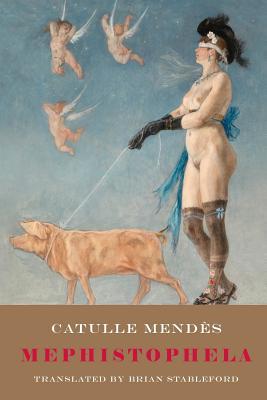Mephistophela, among the most unsettling works of the prolific author Catulle Mends, was originally published in 1889 and is presented here for the first time in English in a superb translation by Brian Stableford. Telling the story of Baronne Sophor d'Hermelinge, a woman as thoroughly martyrized by her creator as any other heroine in the history of fiction, in spite of the enormous competition for that title established by countless writers, male and female, it is one of the archetypal novels of the Decadent Movement, and one of the most striking, precisely because is it such a discomfiting piece of writing, the deliberately controversial nature of which has been further enhanced as its surrounding social context has changed over time.
Highly influential, especially on the works of such writers as Jean Lorrain and Rene Vivien, Mephistophela, in placing lesbian amour in the foreground of the story, deals forthrightly and intensively with a literary theme that had previously only been treated with delicacy and indecision, mostly in poetry. It is essentially a horror story about demonic possession, about contrived and cruel damnation, devoid even of a Faustian pact, which merely employs obsessive lesbian desire as an instrument of damnation.

Mephistophela, among the most unsettling works of the prolific author Catulle Mends, was originally published in 1889 and is presented here for the first time in English in a superb translation by Brian Stableford. Telling the story of Baronne Sophor d'Hermelinge, a woman as thoroughly martyrized by her creator as any other heroine in the history of fiction, in spite of the enormous competition for that title established by countless writers, male and female, it is one of the archetypal novels of the Decadent Movement, and one of the most striking, precisely because is it such a discomfiting piece of writing, the deliberately controversial nature of which has been further enhanced as its surrounding social context has changed over time.
Highly influential, especially on the works of such writers as Jean Lorrain and Rene Vivien, Mephistophela, in placing lesbian amour in the foreground of the story, deals forthrightly and intensively with a literary theme that had previously only been treated with delicacy and indecision, mostly in poetry. It is essentially a horror story about demonic possession, about contrived and cruel damnation, devoid even of a Faustian pact, which merely employs obsessive lesbian desire as an instrument of damnation.